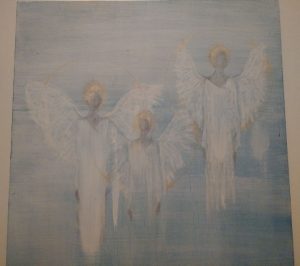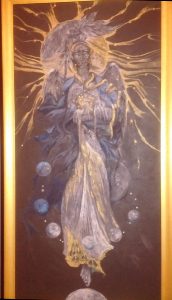Dear Yogis,
Friday already! Almost February… What an exciting time. A time to set our course for the year, a time to set goals, and imagine them.. if you can’t imagine them coming to fruition, then it is unlikely you will be able to achieve them.

If you are interested in ME helping YOU, I can. My ZOOM TAROT READINGS (or consults in the studio now allowed) will show you the way forward. I am totally interested and available to help those people who are ready to take action. I am not the kind of TAROT Reader who predicts the future, requiring nothing from you. As I have said before – if you seek comfort you will not find the truth, but if you are seeking the truth you may find comfort.
TO BOOK A TIME WITH ME: Choose a number of times you are available (to give us both a choice of day and time) and email me to make an appointment. To pay go to the home page, choose PAY VIA PAY PAL – which also accepts credit and debit classes – and pay for the class.
ZOOM AND STUDIO MEETINGS COMING UP:
FRIDAY 6.30pm FREE Tarot/Pendulum Class
SATURDAY 2pm IN STUDIO Tarot/Art Class. This is a monthly in-studio class which follows a series of Zoom classes and allows those students who can, the opportunity of doing a studio class with the teacher to get better understandings of the processes involved.
SUNDAY 10am, The Gita Study Class. We are coming to the end of this series. On its conclusion, we will be taking a break by studying “THE ABUNDANT BREATH” 10am Sunday morning time slot Starting the 6th February. You should make a time for this class – it will make sense of your life as it has made sense of mine (if you let it!). Will be doing the Gita again sometime later in the year.
THE ABUNDANT BREATH
 At last! In exploring the breath totally, I have outdone everything I have done in my life. In the ABUNDANT BREATH I have found love (that God loves me, I love God and experience that love), I have found in my exploration, bliss, and have learned I can live from it and in it.
At last! In exploring the breath totally, I have outdone everything I have done in my life. In the ABUNDANT BREATH I have found love (that God loves me, I love God and experience that love), I have found in my exploration, bliss, and have learned I can live from it and in it.
The Divine experience of The ABUNDANT BREATH.
After all these years, working with the breath has allowed me to put aside the negative experience of birth and childhood and all the negative generalisations I made consciously or subconsciously way back then (and they really did inhibit my abundance). I now have days of feeling overwhelming love for everyone. I just want to say, that I am totally grateful that I have been led to yoga, to the Breath, to YOU my community of yogis, to this place in time and space, and everything I have experienced in my life.
I hope this makes as much sense to you as it does to me, because before nothing did. I now understand that “Nothing can befall us except it is ordained by Allah – trust Him”. The synchronicities alone are amazing….and are more than enough to work with this.
It seems too simple doesn’t it? STOP THINKING AND START LIVING.
“Without an escort you are bewildered on a familiar road;
don’t travel alone on a road you haven’t seen at all;
Don’t turn your head away from the Guide”. (Rumi)
I WILL MEET YOU ON THE MAT (OR IN THE AIR).
NAMASTE. JAHNE




